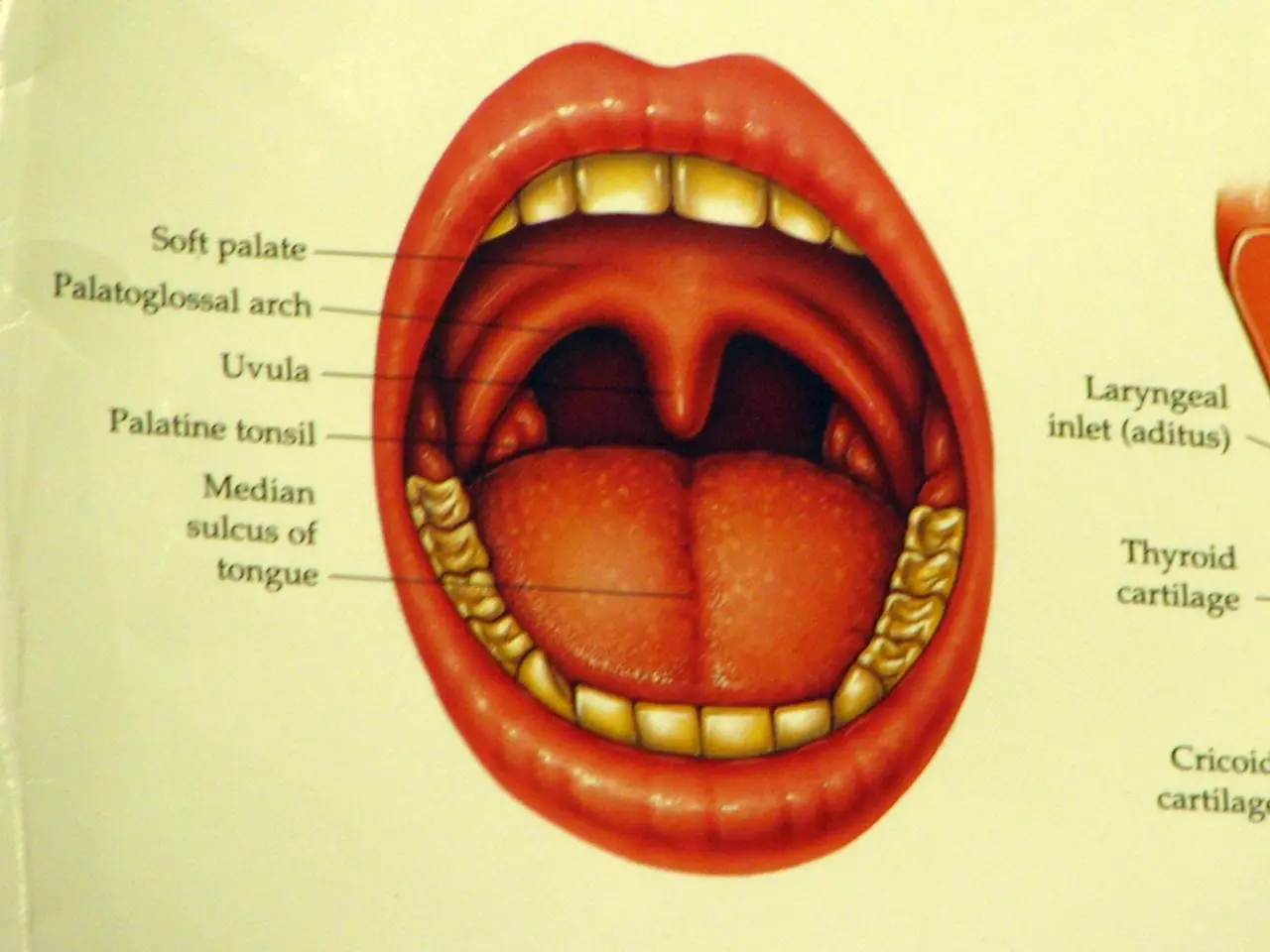Explanation of Canine Lip Licking Behavior
Excessive lip licking in dogs can be a cause for concern for pet owners, as it may indicate various underlying issues. This article aims to shed light on the possible reasons behind this behavior and provide guidance on how to address it.
Medical Causes
One of the most common medical reasons for excessive lip licking is dental or oral pain. This could be due to dental problems such as toothaches or gum disease, particularly periodontal disease, which is an inflammatory condition of the gums and the tissues supporting the teeth. Older dogs with poor oral care are more susceptible to this condition.
Another medical cause could be nausea or gastrointestinal distress. Dogs experiencing nausea may lick their lips, air, or objects excessively. Conditions such as inflammatory bowel disease, liver disease, food allergies, pancreatitis, and intestinal cancers can lead to this behavior.
Behavioral Disorders
Excessive lip licking can also be a sign of anxiety, stress, or compulsive behaviors in dogs. If a dog is under stress or anxiety, it may exhibit compulsive licking behaviors, including lip licking. In some cases, this behavior may be a sign of Obsessive-Compulsive Disorder (OCD) in dogs, often triggered by stress or anxiety.
If a dog receives attention for licking (even unintentionally), it may continue as a habit. This is why it's essential to avoid rewarding the behavior, as it can inadvertently reinforce it.
Signs That Warrant a Veterinary Visit
If your dog is exhibiting excessive lip licking, it's essential to pay attention to other symptoms. Persistent licking, changes in appetite or weight, vomiting, diarrhea, excessive drooling, behavioral changes, and sudden onset of the behavior, especially in older dogs, should prompt a visit to the veterinarian.
Recording videos of the abnormal behavior before a veterinary appointment can help the veterinarian in reaching a diagnosis.
How to Address the Behavior
If the behavior continues despite efforts to address it, it's crucial to consult a veterinarian for a thorough evaluation to rule out underlying medical issues. In the meantime, here are some strategies that may help:
- Keep a Behavior Log: Document when and how often the behavior occurs. This can help identify patterns and potential triggers.
- Provide Enrichment: Offer toys and activities to reduce boredom and stress.
- Distract: Distract a dog with a food-filled toy or by ignoring the behavior.
- Avoid Hyper-focusing: Avoid hyper-focusing on reducing lip licking, as this can increase anxiety and potentially reinforce the behavior.
In conclusion, excessive lip licking in dogs can be caused by a variety of factors, including medical issues, behavioral disorders, and environmental stimuli. By understanding the potential causes and taking proactive steps, pet owners can help their dogs manage this behavior and improve their quality of life. Always remember to consult a veterinarian if you have concerns about your dog's health.
- 'Science has revealed that excessive lip licking in dogs can be a symptom of mental health issues, such as anxiety and stress, which are part of the broader health-and-wellness spectrum.'
- 'Incorporating elements of health-and-wellness, like providing pets with a balanced lifestyle that includes enrichment activities and mental stimulation, can help alleviate compulsive behaviors like excessive lip licking in dogs.'




